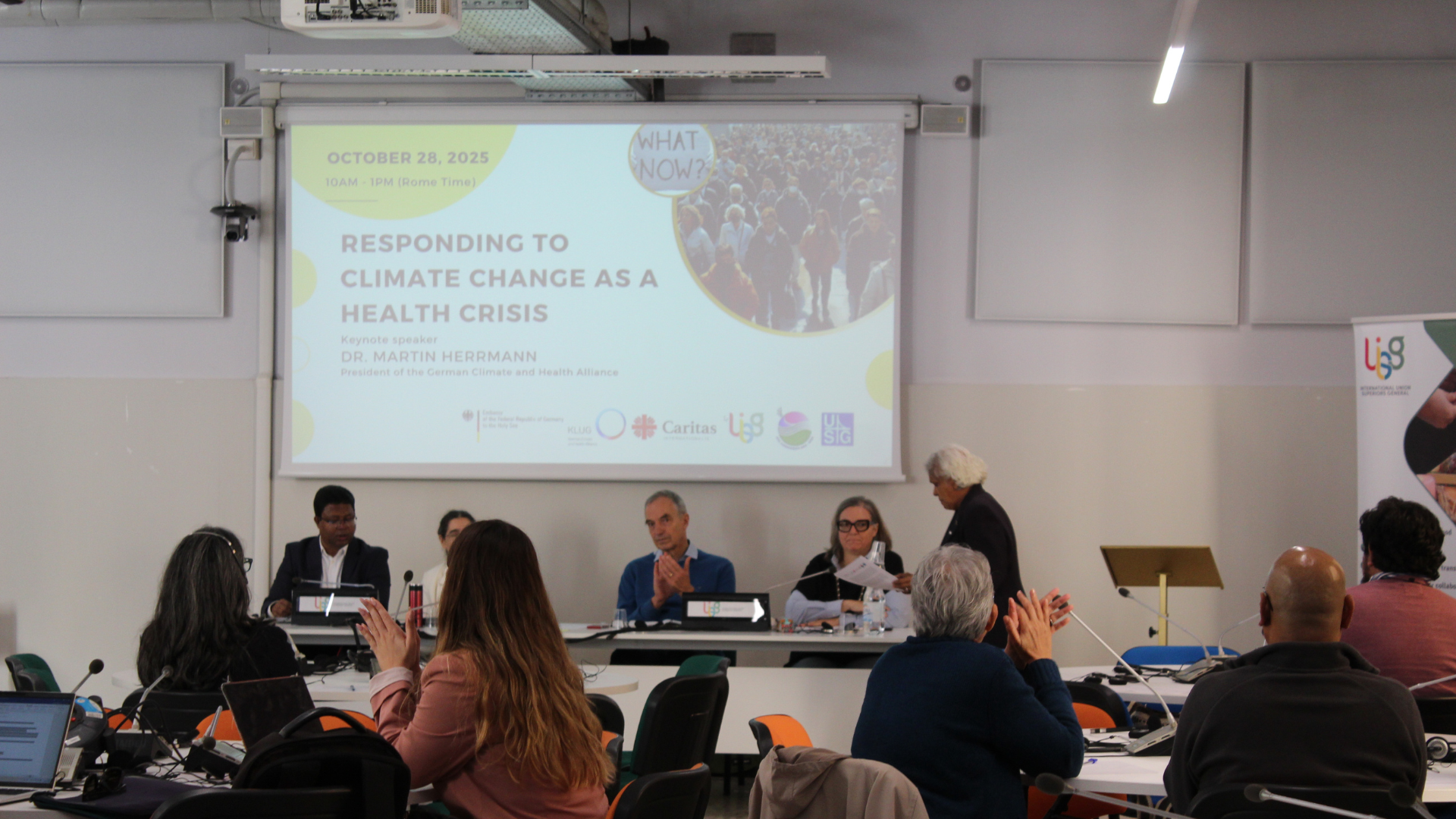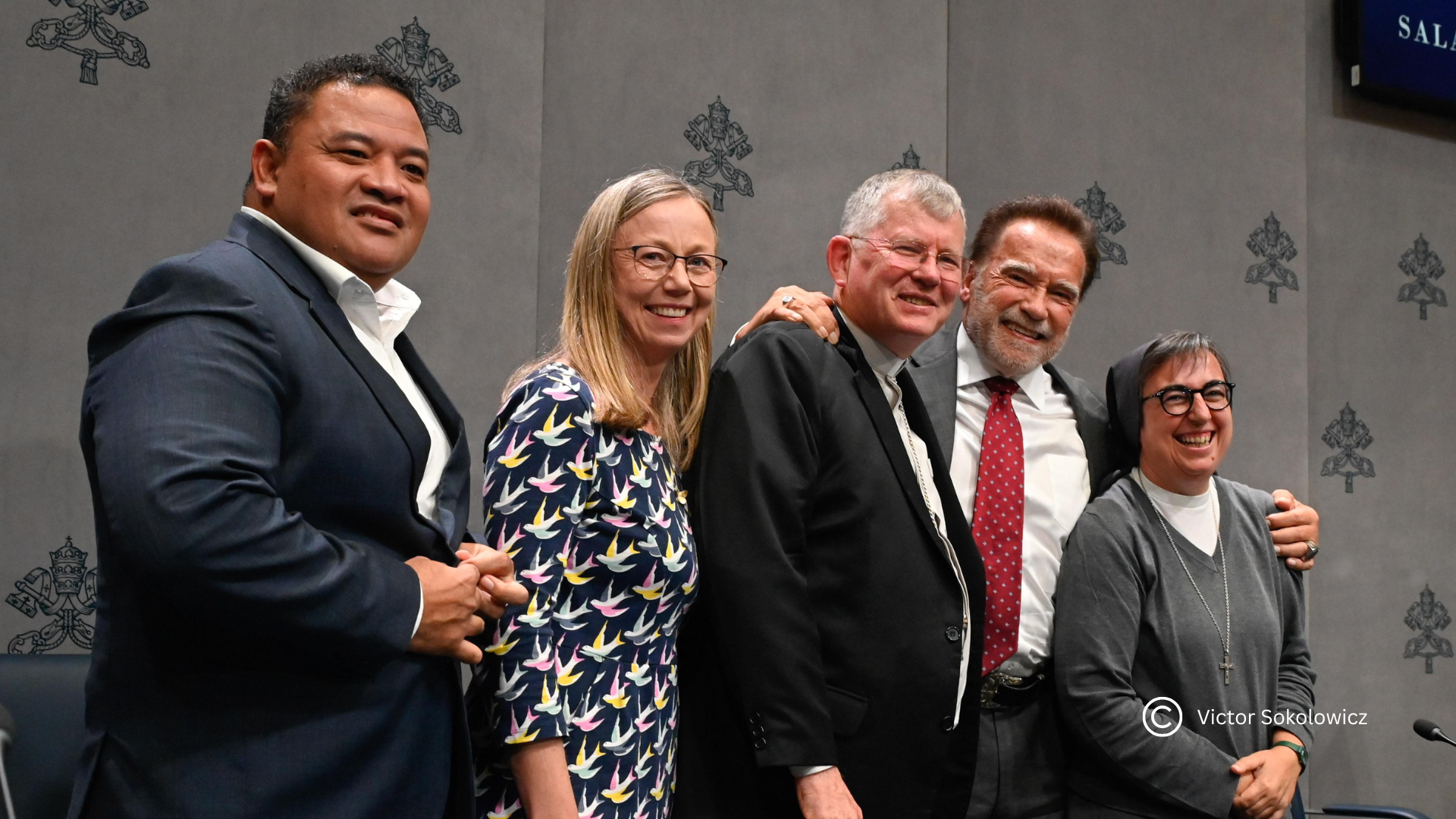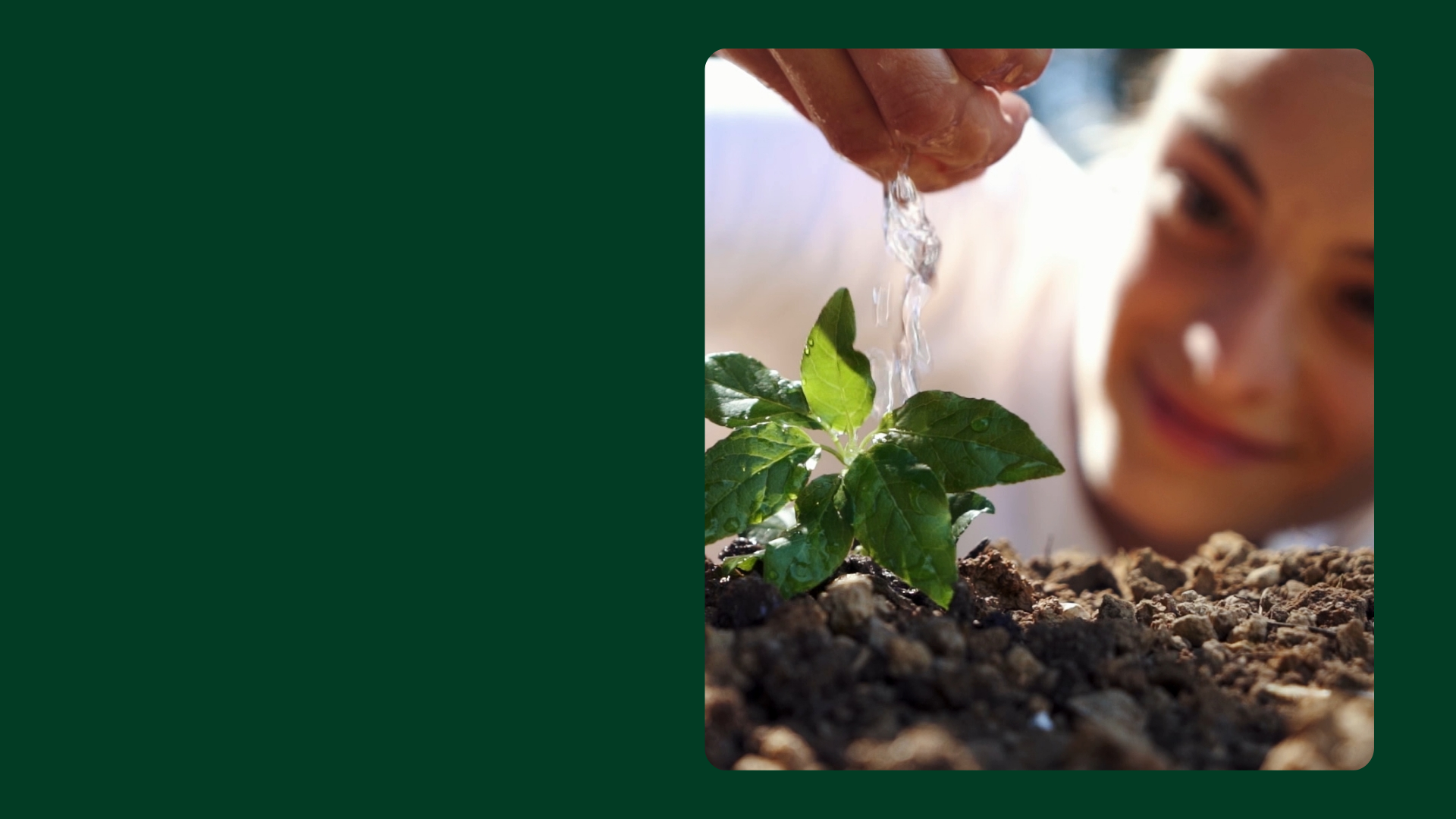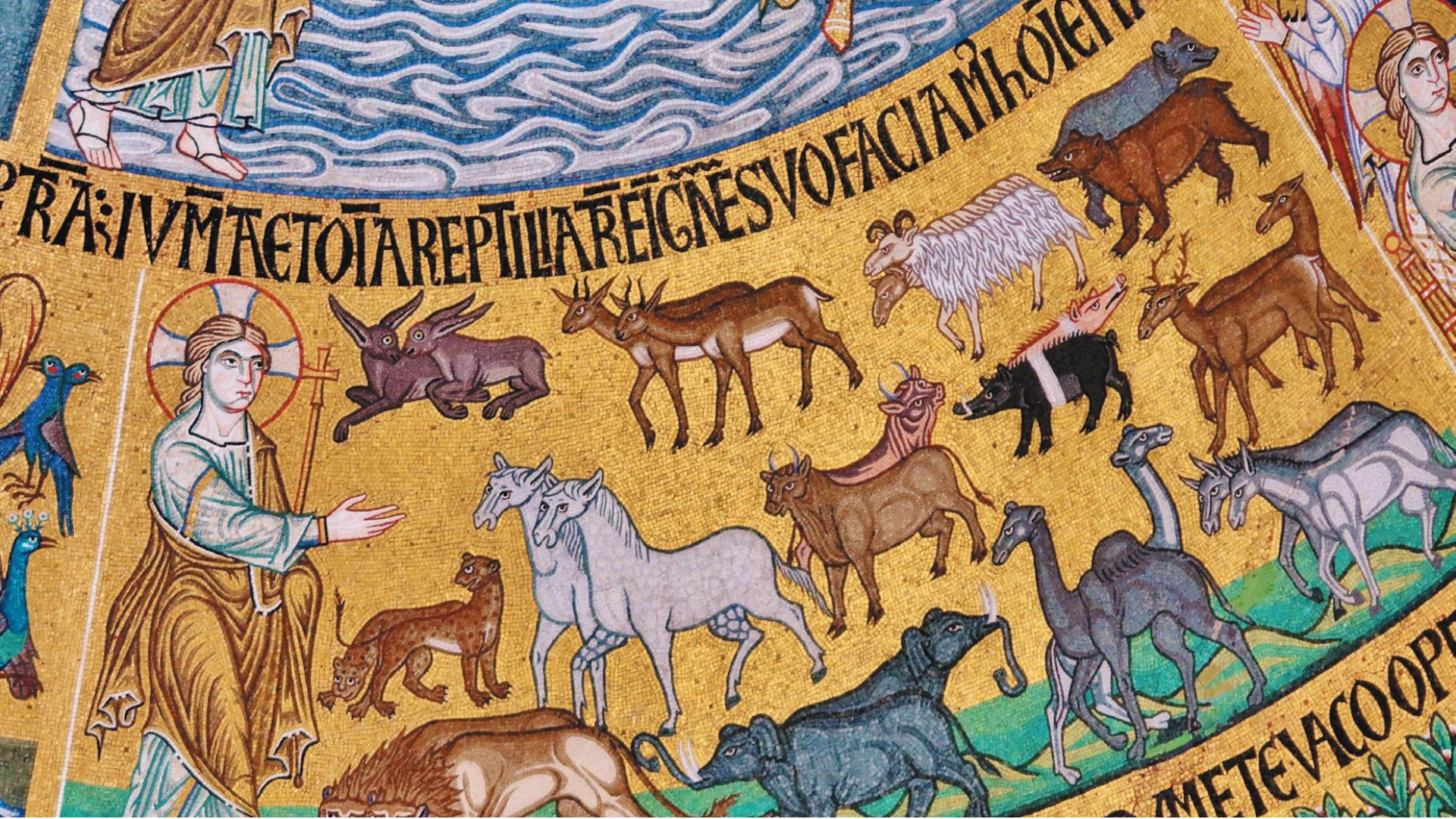
14/11/2025
Noticías
Alianças inesperadas e soluções comunitárias para enfrentar as mudanças climáticas
Alianças inesperadas e soluções comunitárias para enfrentar as mudanças climáticas
Perante um planeta que emite sinais cada vez mais alarmantes, a UISG centrou a sua atenção na ligação entre a crise climática e a saúde global.
A 28 de outubro, a UISG (União Internacional das Superioras Gerais) reuniu especialistas, instituições, organizações religiosas e agentes humanitários no evento "Responder às mudanças climáticas como crise sanitária", com o objetivo de colocar esta emergência, já impossível de ignorar, no centro do debate.
A Irmã Mary John Kudiyiruppil, Secretária Executiva Associada da UISG, destacou o compromisso da vida religiosa feminina com o cuidado da casa comum através da iniciativa "Semeando Esperança para o Planeta". O evento contou também com a participação inicial do ministro Christoph Braner, da embaixada da Alemanha junto da Santa Sé, e da Dra. Giulia Amerio, responsável sénior de saúde da Caritas Internationalis.
As mudanças climáticas e a saúde das pessoas
O Dr. Martin Herrmann, cofundador e presidente da Aliança Alemã para as Alterações Climáticas e a Saúde (KLUG), explicou como as rápidas transformações do planeta afetam concretamente a saúde física, mental e social das pessoas. Como o próprio palestrante afirmou: “Apesar dos alertas ao longo dos anos, agora vemos que o planeta se encontra efetivamente numa situação em que subestimámos os riscos.” Herrmann destacou o valor da ação comunitária e o papel das redes sociais e religiosas na promoção de mudanças significativas nas políticas e nos hábitos diários.
As intervenções do ministro Christoph Brandner e da Dra. Giulia Amerio demonstraram como os fenómenos climáticos extremos afetam diretamente o acesso aos cuidados de saúde e a propagação de doenças, ao passo que Herrmann salientou que a transição energética já está em curso e pode constituir um motor de transformação social quando impulsionada pelas comunidades.
Experiências concretas e soluções locais
O debate incluiu testemunhos de pessoas que trabalham no terreno.
O Dr. Daud Jibon Das, diretor executivo da Caritas Bangladesh, apresentou várias iniciativas concretas: campos de saúde de emergência, habitações resistentes a desastres naturais, culturas resilientes, jardins flutuantes, programas de saúde materno-infantil e apoio nutricional.
Reema Nanavaty, Diretora da Self-Employed Women’s Association of India (SEWA- Associação de Mulheres Trabalhadoras Independentes), partilhou os desafios enfrentados por milhões de mulheres trabalhadoras do setor informal, afetadas por secas, inundações e calor extremo, e apresentou soluções como formação em saúde, telemedicina e modelos comunitários de adaptação para proteger a saúde, o rendimento e a dignidade.
Comunidades de fé e novas alianças para a saúde planetária
O Dr. Francis Kuria, Secretário-Geral da Religions for Peace International (Religiões pela Paz Internacional,), salientou a importância de uma abordagem espiritual que integre o cuidado do planeta em função das pessoas. As intervenções de Maureen Goodman, Diretora de Programas de Brahma Kumaris UK, e da Caritas Internationalis chamaram a atenção para os efeitos das alterações climáticas na saúde mental, sobretudo em comunidades deslocadas, e para a necessidade de incluir as perdas humanas e sociais nos mecanismos de financiamento climático.
A jornada terminou com um apelo ao fortalecimento da colaboração entre instituições, comunidades religiosas, sociedade civil e redes locais, de modo a promover estilos de vida sustentáveis e valorizar as iniciativas surgidas das próprias comunidades. As intervenções finais estiveram a cargo da Irmã Maamalifar M. Poreku, coordenadora do programa "Semeando Esperança para o Planeta" da UISG, tendo a moderação do evento sido conduzida por Giulia Isabel Cirillo, Coordenadora de Advocacy da UISG.
O evento demonstrou como as alianças intersectoriais e inter-religiosas podem constituir um motor fundamental para a saúde do planeta e das futuras gerações.
News relacionadas
 Outras Noticías
Quarta-Feira 01 Outubro 2025
Papa Leão XIV inaugura a Conferência Raising Hope: o que ainda falta fazer depois da Laudato Si’?
Ler
Outras Noticías
Quarta-Feira 01 Outubro 2025
Papa Leão XIV inaugura a Conferência Raising Hope: o que ainda falta fazer depois da Laudato Si’?
Ler
 Outras Noticías
Terça-Feira 30 Setembro 2025
A Santa Sé apresenta uma conferência global sobre a crise climática e a justiça social
Ler
Outras Noticías
Terça-Feira 30 Setembro 2025
A Santa Sé apresenta uma conferência global sobre a crise climática e a justiça social
Ler
 Noticías do Vaticano
Quarta-Feira 03 Setembro 2025
O Vídeo do Papa: Pela nossa relação com toda a criação
Ler
Noticías do Vaticano
Quarta-Feira 03 Setembro 2025
O Vídeo do Papa: Pela nossa relação com toda a criação
Ler
 Noticías
Quarta-Feira 16 Julho 2025
Vamos Celebrar o Dia da Criação com a nova “Missa da Criação”
Ler
Noticías
Quarta-Feira 16 Julho 2025
Vamos Celebrar o Dia da Criação com a nova “Missa da Criação”
Ler
Projectos e Comissões relacionados

Irmãs, incidência global
Saber mais
Semeando a esperança para o planeta
Saber mais
Justiça, Paz e Integridade da Criação
Saber mais
26/11/2025
Pafadnam Barbara Aline
Merci pour .la prise en conscience de semer l'espérance sur la planète et l'urgence et la nécessité de renforcer la collaboration entre les Institution , les Communautés religieuse, les sociétés civiles et les réseaux en promouvant des modes de vie durable.